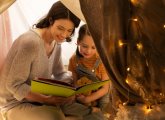Whether they are serving tea in a café or deciding if they can safely billet the crocodiles with the wildebeest in a small world zoo, children can learn lots from their imagination…
When it comes to personal development, there’s no time quite as critical as the early years. From a young age, children learn through play, and it is through this creative exploration that they lay the foundations for the skills and knowledge they need for the future. This phenomenon is also not uncommon when it comes to the primary classroom, and recent research provides scientific evidence that illustrates how play can continue to aid children’s development and boost their understanding of the world.
In the classroom, play gives children the freedom to explore the topics that interest them and develop their understanding of ideas, while still having a safe space in which to seek guidance from their teachers when they need it. It supports the learning of many important skills that will be useful for their future – for example, play can encourage the development of everything from creativity to sorting and counting skills and social etiquette.
Creative skills vary in form, but play provides ample opportunity for children to express themselves and tap into their imaginations. With a play-based approach, for example, a set task relating to a specific topic or theme can nevertheless offer children the freedom to come up with a unique story or scenario.
Providing children with an open-ended task that has no one right answer, means that children are encouraged to explore a variety of options, consider different solutions and come up with their own conclusion, all while learning about certain things along the way.
Role play offers another way to encourage children’s creativity. Pretending that you occupy another person’s shoes, putting yourself into real-life situations, is an effective way for children to embrace their imagination and make sense of the world around them. Set up different scenarios in the classroom and let them explore. Whether it is creating a ‘café’ environment made up of customers, waiters and kitchen staff, or something more exotic, encourage the children to pick their roles and then call out different situations. For instance, in the case of the café, an unhappy customer, giving the right change from the till, taking a large order, etc. These practical activities will help pupils learn to interact effectively with one another, develop mathematical skills, such as the aforementioned counting and sorting, and recognise and respond appropriately to other people’s emotions.
While playing with ‘toys’ might not seem educational, there are certain things that can be learned for such activity, including important organisational skills. Take a box of animals – setting a task that allows children to design their own zoos will get them thinking about habitats and categorising different animal families. Children could distinguish the different environments animals live in, or the types of animals that could cohabitate. Although a fun and playful activity, this will help children build their awareness of the world and, most importantly, they will more than likely be so engaged that they will forget they are learning.
Taking this one step further, play can also facilitate time for social opportunities. Group activities and discussions can encourage the development of social etiquette. For example, children could discuss their zoos, and the reasoning behind their decision to group particular animals and/or communities. Group conversations encourage listening skills, and teach children not to interrupt and the importance of taking turns. With the growing pressure we face to prepare children for a changing future, play perhaps provides the perfect balance of allowing children to be children and enjoying their time in the classroom, while also laying the foundations for their academic future and later lives. With research suggesting that play is the most natural form of learning, it makes sense for schools to teach children in a way that affords them the freedom to explore while connecting with the world.
Simon works at LEGO® Education UK. To learn about its education resources, including LEGO® MINSTORMS® Education EV3, visit LEGOeducation.co.uk

Hygge in the Early Years – How to harness its power
Editors picks
